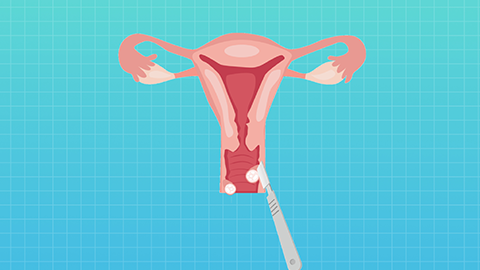What are the effects of removing the uterus on the body?
Generally, hysterectomy may affect the body in several ways, including cessation of menstruation, infertility, impaired ovarian function, changes in pelvic floor structure, and altered sexual experiences. It is recommended to closely monitor physical changes after surgery and ensure proper postoperative care and recovery. Detailed explanations are as follows:
1. Cessation of Menstruation
Menstruation depends on the cyclic shedding of the uterine lining. After hysterectomy, the endometrium no longer exists, and menstruation will naturally cease completely. For women of reproductive age, this sudden termination of menstruation may require a period of physical and psychological adjustment. Particularly for those who previously had regular menstrual cycles, this change may cause temporary discomfort or a sense of loss.
2. Infertility
The uterus is the sole site for embryo implantation and fetal development. After hysterectomy, women permanently lose their fertility. This represents a significant change for women who desire to have children, potentially causing considerable psychological stress and requiring an extended period for emotional adjustment.

3. Impaired Ovarian Function
The uterus has close vascular and neural connections with the ovaries, and hysterectomy may affect ovarian blood supply. Some women may experience premature ovarian decline after surgery, presenting with symptoms similar to menopause, such as hot flashes, night sweats, insomnia, memory loss, and emotional irritability. Skin condition may also deteriorate, becoming dry and loose.
4. Changes in Pelvic Floor Structure
The uterus provides support within the pelvis, working with surrounding ligaments and muscles to maintain pelvic floor stability. After hysterectomy, the supporting structures of the pelvic floor are compromised, potentially leading to pelvic floor tissue laxity and resulting in conditions such as anterior or posterior vaginal wall prolapse and stress urinary incontinence. For example, during coughing, sneezing, laughing, or lifting heavy objects, increased abdominal pressure may cause involuntary urine leakage.
5. Altered Sexual Experience
After hysterectomy, vaginal length may be slightly reduced. Additionally, due to hormonal changes or psychological factors, some women may experience vaginal dryness or dyspareunia, which can affect sexual comfort.
After hysterectomy, women should pay attention to wound care, keeping it clean and dry to prevent infection. Vigorous exercise and heavy physical labor should be avoided in the early postoperative period to prevent poor recovery of the pelvic floor tissues. Pelvic floor muscle training may be performed under medical guidance to strengthen pelvic floor muscles and improve pelvic floor function. It is also important to actively adjust one's mindset and seek support from family, friends, or professional psychological counseling when necessary. If significant physical discomfort or emotional problems arise, timely medical consultation is advised.









